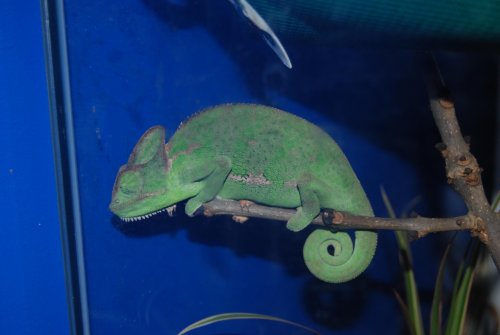bradders
New Member
hi my vieled cham has taken a real likeing to lettace and cucumber. it all started wen i put sum in for the few crickets he did not eat, so they would not get melnurishd and would stay healthy till he eat them. but i noticed that he prefferd to eat the veg instead. is this ok for him?
i did put some more in another day and he ate that to
message back bradders 4861
i did put some more in another day and he ate that to
message back bradders 4861
Attachments
Last edited:





